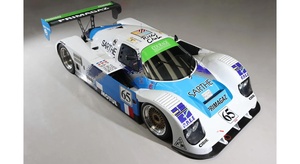I have a couple of thoughts on this which should surprise nobody.
1. Getting a car ready is expensive. Getting a car with bigger tires and brakes ready is more expensive. I did a quick run down of a 2000 C5 Corvette vs. a 2000 Miata, both intentionally off your list but both very popular track cars. I put new Cetric blank rotors and G-log R10 pads on both and the Miata got RS4 tires and the Corvette got slightly less track focused Continentals. The Miata was $775 and the Corvette was $1215. Doing this kind of math is important when comparing cars because of point 2.
2. Most people that I know decide to either get a different track car or leave track driving behind by their 3rd to 5th event. Unless you can find someone to value what you put on the car, and you haven't worn them out yet when you sell it, prep costs are a complete write off. If you do three events in that Corvette it just cost you $400 a weekend in consumables. The point of this isn't to scare anyone away, but rather to really really really consider consumable costs when they start looking at cars. The faster you go and the bigger tires you run, the more consumables cost and there is a reason they're called consumables.
3. The closer a car is to being ready to drive HARD from the factory, the better off you are. You want a brakes/tires car if you can. Upgrading oiling and cooling and brakes and suspension from factory spec is expensive especially when your car buy in is at GRM levels. And remember, we're probably going to abandon this idea as we advance/quit this whole track thing.
4. Since the ideal is to daily the car in between events, the better the car is as a car, the better it is. Low/stiff/loud sounds cool in theory, but passing the car off to your wife to pick up the kids in something set up for the track can get old fast unless your wife is particularily awesome. The criteria for a track car and the criteria for a family car are different, they can overlap, but it's a small sliver of overlap.
Where does that leave us? With a billion options that have already been suggested. I can tell you my history of track cars as a cautionary tale. I started with my CTS-V wagon. It was expensive enough to make me nervous and capable enough to make me really nervous. I did four events and One Lap in it before deciding it was dumb and moving on. I spent about $700 in brakes, $1200 in wheels and $2k in tires. It was a great family car. My second track car was a 1990 Civic Si that I bought fully set up. I did four track weekends and a half dozen autocross events in it. I HATED driving in on the street and couldn't drive my kids around in it because my wife said no. I had to wear hearing protection while driving. That car cost me one $400 set of tires and no brake money at all. My current track car is a 2003 Accord coupe. I've done two track days, two autocrosses and 6k miles so far. $1200 in wheels and tires and $800 in brakes. The car is an exceptional daily aside from the kids complaing about the coupe part. Doesn't bother me, they're all big enough to sort it out themselves and I sit in front. The car has been great on track/autocross so far. It's not fast but it's in the same ballpark as a NA/NB Miata at the same prep level on track and about mid pack raw time autocross in my region. It's fun so far, but that may fade after the 3-5 weekends that seems to affect a lot of cars. The plan is to be at about 5 weekends and some rallycross by this time next year, so we'll see.
I don't think there is an obvious answer to this question. Some people would be happy with my Accord, others don't have the arm strength to give 10 point by's a lap on track while trying to concentrate on shifting and braking points. 
If you're going to use the car as a car, then get something that you like as a car that will work with just tires/brakes and pay attention to those costs. When it's time to upgrade you'll have a better idea which direction to go, if you don't need to upgrade, we may have a new answer.




































